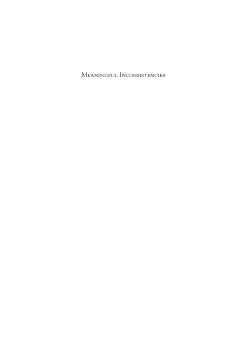
Additional Information
Book Details
Abstract
School differentiates students-and provides differential access to various human and material resources-along a range of axes: from elected subjects and academic "achievement" to ethnicity, age, gender, or the language they speak. These categorizations, affected throughout the world by neoliberal reforms that prioritize market forces in transforming educational institutions, are especially stark in societies that recognize their bi- or multicultural makeup through bilingual education. A small town in Aotearoa/New Zealand, with its contemporary shift toward official biculturalism and extensive free-marketization of schooling, is a prime example. Set in the microcosm of a secondary school with a bilingual program, this important volume closely examines not only the implications of categorizing individuals in ethnic terms in their everyday life but also the shapes and meaning of education within the discourse of academic achievement. It is an essential resource for those interested in bilingual education and its effects on the formations of subjectivities, ethnic relations, and nationhood.
“The translation of a Ph.D. thesis into a book is not always a successful enterprise. But it succeeds here. It is a welcome addition to a literature which explores the transformation of New Zealand in the late twentieth century from a colonial nation-state to a bicultural society, even if it is flawed or incomplete in certain regards. What this book does is indicate how this transformation impacts on identity and relationships in .a particular setting.” · JRAI
“This book will be of interest to those following struggles for sovereignty and autonomy, for scholars interested in educational reform, and to Maori specialists.” · Pacific Affairs
"Based on research undertaken at a time of neoliberal reform in the 1990s, when middle-class Asian students from other countries entered into New Zealand's particular ethnic mix of native students from Maori and Pakeha (European settlers) backgrounds...and written in an accessible yet rigorous style, [this study] engages with a wide range of theories regarding the function of modern education...Along the way, Neriko Doerr provides many delightfully surprising insights that promise to reframe bilingual education in other national settings." · John Borneman, Princeton University
"[R]elevant to a far wider audience than those concerned with New Zealand. The issues of multiculturalism, biculturalism, language teaching in school, national policies about identity as experienced by teachers, students, administrators, etc., are issues of very general interest, particularly in the United States where all that is attempted in New Zealand is open for debate. In every way, Dr. Doerr's book is exemplary of what makes anthropology essential for developing our knowledge and reforming our policies." · Hervé Varenne, Columbia University
Neriko Musha Doerr earned a PhD in anthropology from Cornell University. Her publications have appeared in a number of journals. She currently teaches cultural anthropology at Brookdale Community College, New Jersey.
